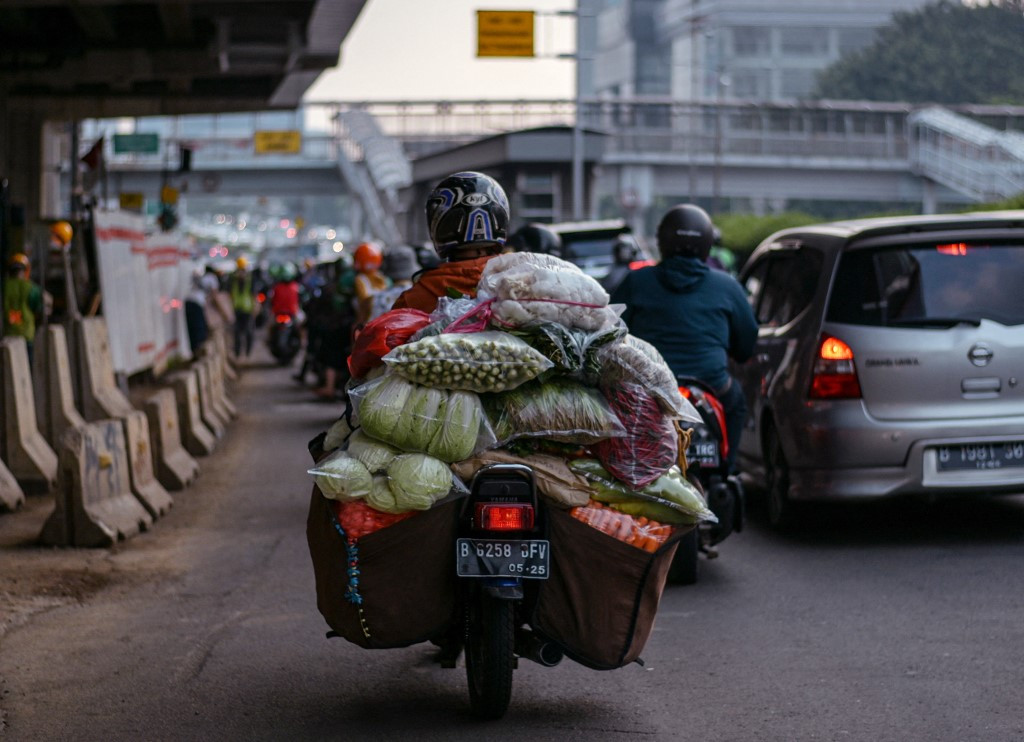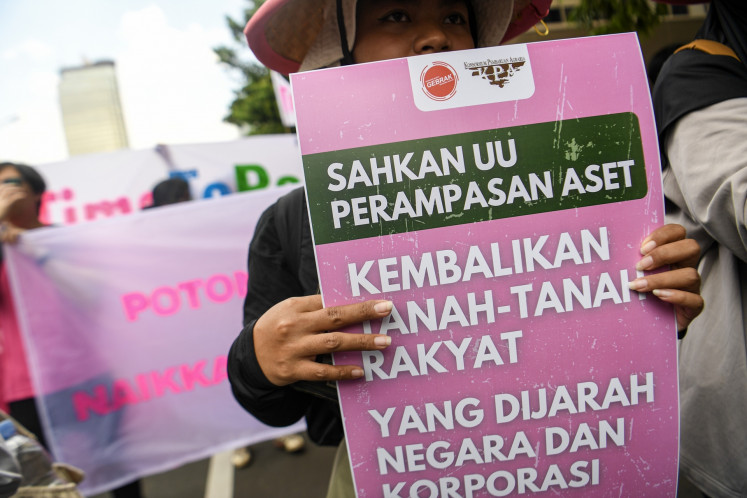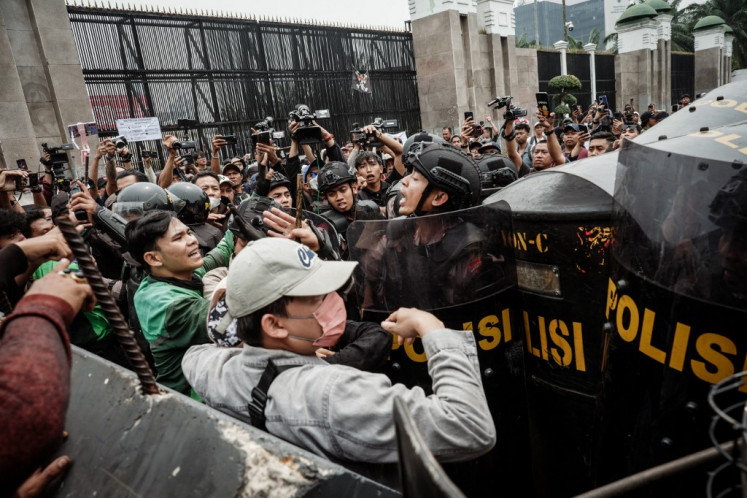Popular Reads
Top Results
Can't find what you're looking for?
View all search resultsPopular Reads
Top Results
Can't find what you're looking for?
View all search resultsBusinesses, trade unions call for expansion of wage subsidy scheme
Business associations and trade unions support the Ombudsman's proposal to include informal workers in the scheme.
Change text size
Gift Premium Articles
to Anyone
B
usinesses and trade unions have backed the Indonesian Ombudsman's call for the government to expand its wage subsidy program (BSU) by including informal workers, to better shield the workforce from high inflation.
The Indonesian Chamber of Commerce and Industry (Kadin) and the Indonesian Workers Union Association (Aspek) said on Monday they supported the Ombudsman's proposal that the government included specific categories of informal workers such as online motorcycle taxi drivers (ojol), automotive repair workers and small-shops owners.
Manpower Ministerial Regulation (Permenaker) No. 21/2021, the law that regulates the BSU, dictates that recipients should be registered with the Workers Social Security Agency (BPJS Ketenagakerjaan) and have a maximum monthly wage of Rp 3.5 million (US$241).
Indonesian Ombudsman member Robert Na Endi Jaweng said that many informal workers were not BPJS Ketenagakerjaan members, despite being in the same economic class as their formal counterparts.
"There is a real inequality here between those included in BPJS Ketenagakerjaan and those who are not, when in fact they are actually suffering the same due to poor economic conditions," Robert said during a press briefing on Friday.
The wage subsidy aims to provide a buttress for workers in staving off the imminent threat of inflation, as the war between Russia and Ukraine has led to a drastic spike in global commodity prices. Inflation rose to a nearly two-year high of 2.64 percent in March due to the spike.
Read also: Indonesia braces for high inflation
Economists have said that Indonesian inflation would accelerate in the coming months in response to the removal of more price controls, higher domestic demand amid easing COVID-19 curbs and the Ramadan and Idul Fitri holidays, a hike in value-added taxes (VAT) and more uncertainty surrounding the Russia-Ukraine war.
For 2022, Indonesia prepared Rp 8.8 trillion for a potential 8.8 million BSU recipients, where each would receive Rp 1 million. This year's budget allocation is the same as the one implemented in the previous year.
Robert reiterated that, despite government concerns on data validation, including informal workers within the BSU was a matter of economic justice.
"One way or another, these workers should have the right to receive the BSU, as it will create a more inclusive environment," he added.
Aspek president Mirah Sumirat said the union supported the Ombudsman's recommendation regarding the BSU and stressed the need to pressure the government to implement it.
"The government should ask assistance from all parts of society to help them collect data. They need to open themselves to external help," said Mirah in a phone call on Monday.
Mirah called for the government to expand the BSU to cover all types of workers, something that Kadin also agrees with.
"We support the recommendation. More than that, we believe every worker that receives wages should receive the BSU," said Kadin deputy chairperson for manpower Adi Mahfudz in a written message to The Jakarta Post.
The mounting calls to expand the wage subsidy program comes as the government plans to reduce its budget deficits and debt accumulation, otherwise known as fiscal consolidation. Indonesia plans to reinstate a budget deficit cap of 3 percent of gross domestic product (GDP) by 2023.
Read also: RI eyes smaller budget deficit amid rising commodity prices
Manpower Minister special staff Dita Indah Kurniasari said that BPJS Ketenagakerjaan already provided a scheme to support informal workers through the non-wage recipient (BPU) scheme.
The BPU scheme provides accident insurance, life insurance and old-age benefits for members, whose premiums are adjusted to their wages. Members also include freelancers, part-time workers and entrepreneurs.
"This is an old program but still has low membership compared with [the program for] formal workers. Thus, we shall focus our efforts on raising awareness about this program," said Dita.
Moreover, she stated that facilitating training would be the primary approach for the government to help small and micro-enterprises develop.
Center of Economic and Law Studies (CELIOS) director Bhima Yudhistira said informal workers urgently needed the BSU, as they formed around 40 percent of workers with the lowest domestic spending, where a slight price increase in basic needs would drag them below the poverty line.
"There are around 70 million informal workers in Indonesia who have not yet received social security coverage from the national economic recovery (PEN) budget," he added.
Commenting on budgetary concerns, Bhima said the government could reallocate windfall gains from high commodity prices and from National Strategic Projects (PSNs) to fund the expanded wage subsidy.
The Ombudsman's Robert, also on Friday, reported that 9 percent of last year's 8.2 million BSU applicants failed to receive the funds due to data errors and thus, recommended the government, BPJS Ketenagakerjaan and banks, as fund distributors, enhance their data management system.
"Data management reforms should be expedited to increase the worker's welfare, reduce inequality, and spur economic growth," Robert said.










